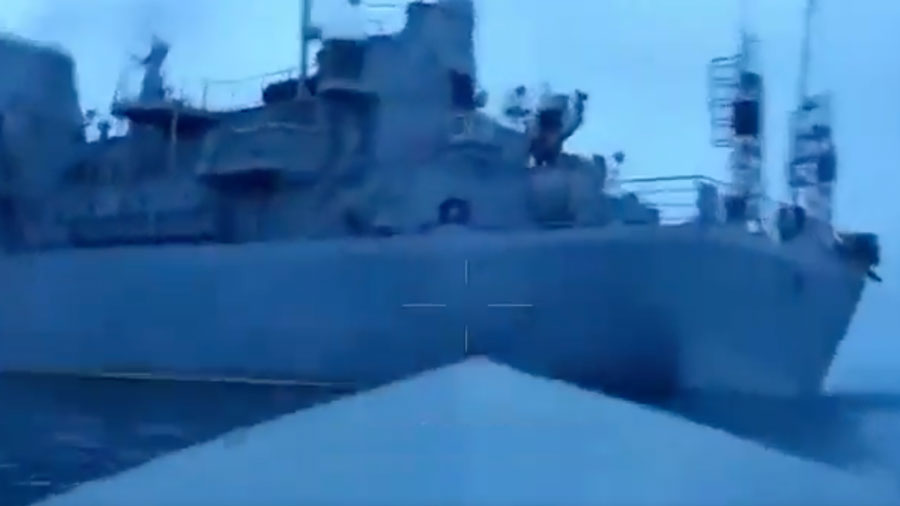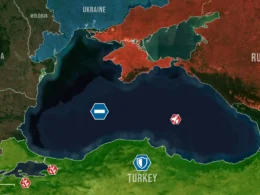03 January. Today, there are a lot of interesting updates from the Russian Federation, where a massive Ukrainian strike and sabotage campaign has been ongoing.
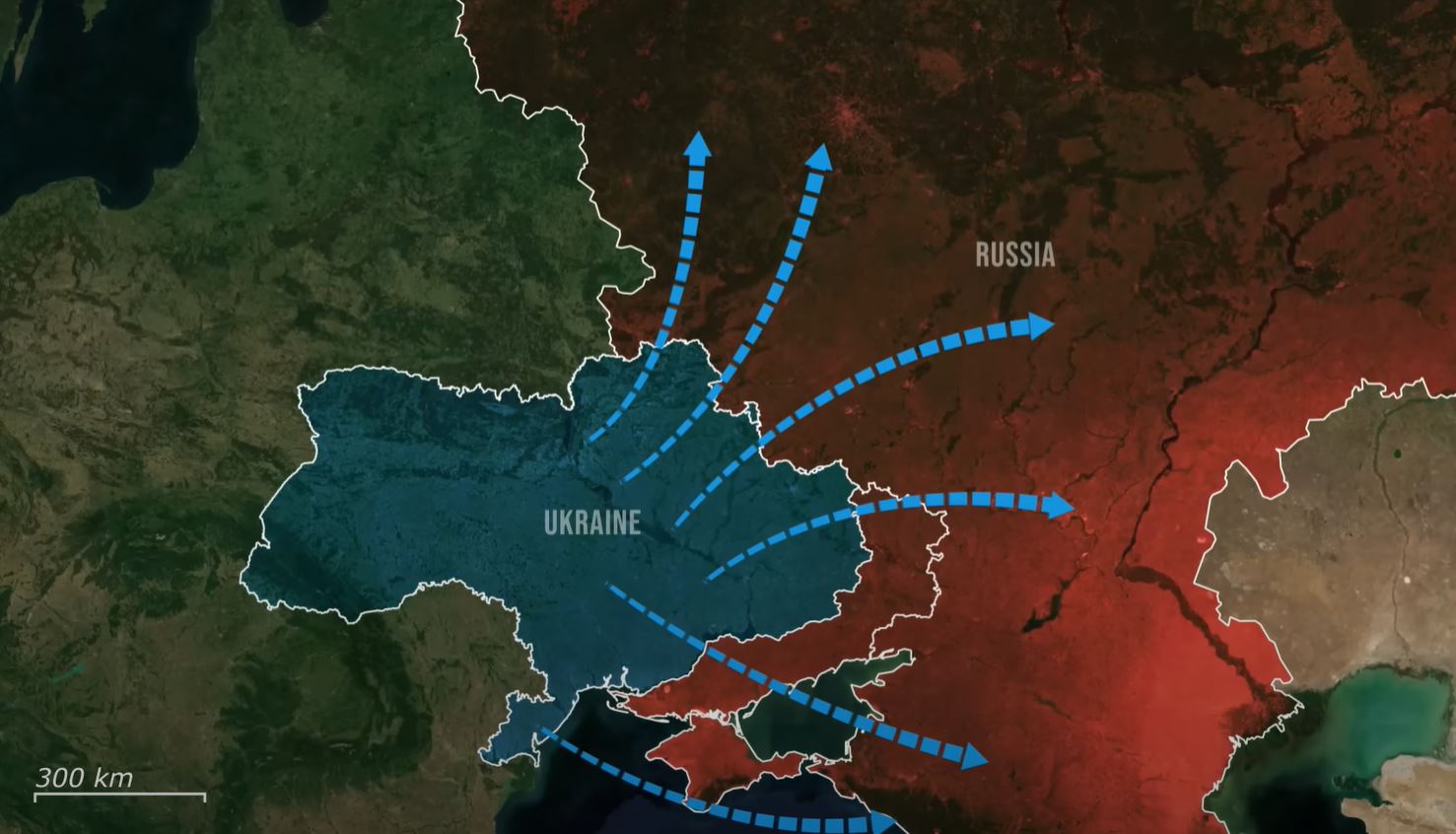
Here, Ukrainian forces have launched a new wave of precision strikes targeting key Russian assets, showcasing their ability to disrupt not only the military command chain but also logistical networks and challenge Russia’s strategic capabilities. This series of coordinated attacks employed a combination of HIMARS, Storm Shadow missiles, and innovative drone technology to devastating effect.
Russian command posts and troop deployments under fire
Firstly, the Ukrainians decided to strike command posts and troop deployments, and they did it in a particularly effective way. In Oryol Oblast, they used Storm Shadow missiles to obliterate a military facility and kill several Russian soldiers and officers.
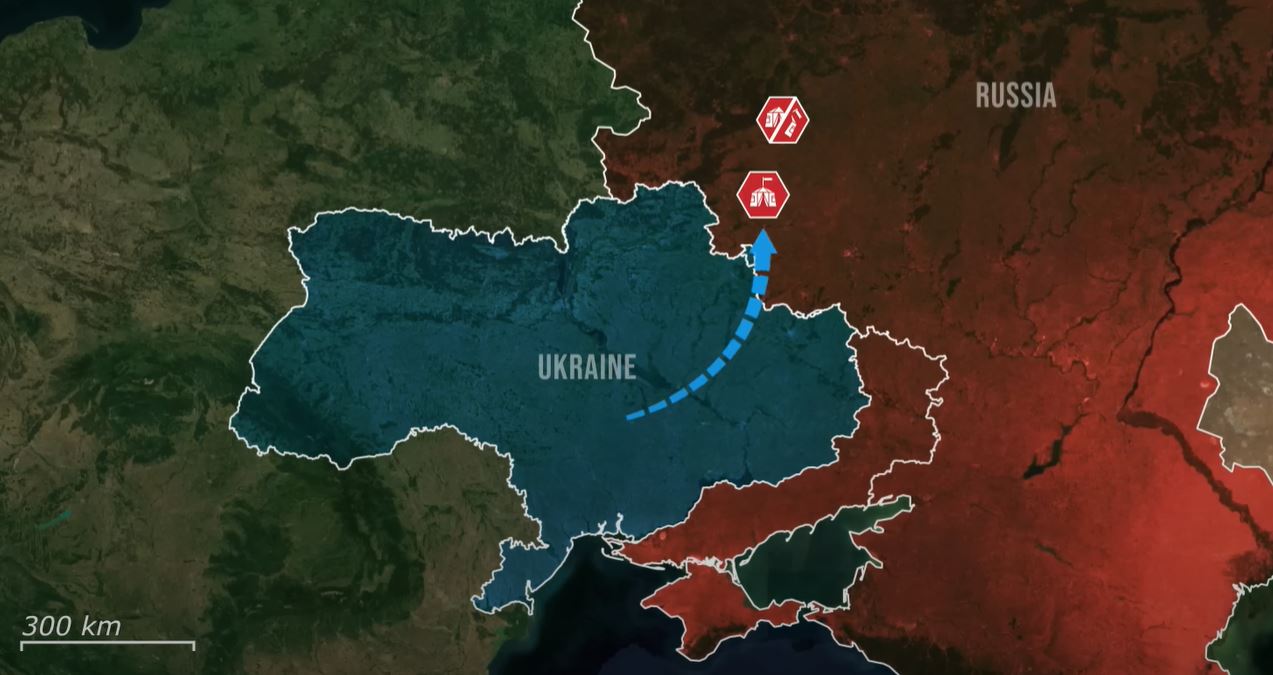
Then the Ukrainian forces targeted the main Russian supply hub for the counteroffensive in Kursk Oblast which is situated in Lgov by destroying a location known for the presence of Russian troops. Lgov was also the target of a precision strike with HIMARS, showcasing the level of Ukrainian surveillance and infiltration, which allowed them to hit the local railway station just moments after fresh Russian reinforcements have arrived.
Ukrainian operators also targeted command centers in the occupied part of Ukraine's Zaporizhzhia Oblast, decimating Russian leadership with another HIMARS strike.

In one operation, three high-ranking enemy officers were eliminated, alongside the destruction of their vehicles and the subsequent disruption of evacuation efforts which eliminated any chance of survival of the Russians. These actions against command posts and troop concentrations aim to weaken Russian coordination and hinder their operational tempo.
Russian logistics network and rail infrastructure damaged
Secondly, Ukraine has maintained relentless pressure on Russian logistics, targeting key railway networks to disrupt supply chains critical for Russia’s military operations. Initial explosions in the Voronezh region halted train services due to extensive rail damage, setting the tone for continued sabotage.
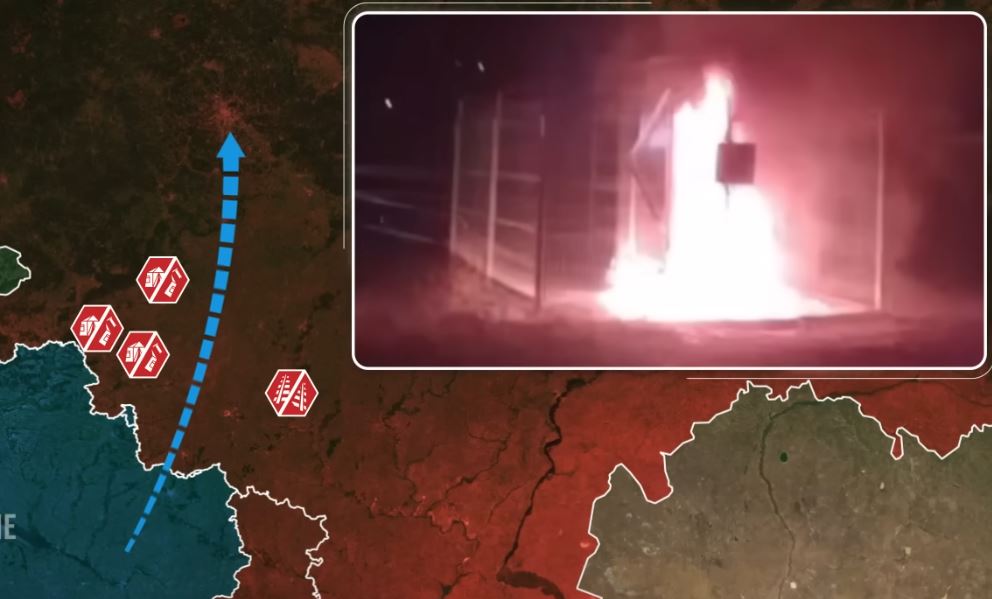
In the Moscow region, additional blasts caused further destruction to the rail network, significantly hindering freight movement.
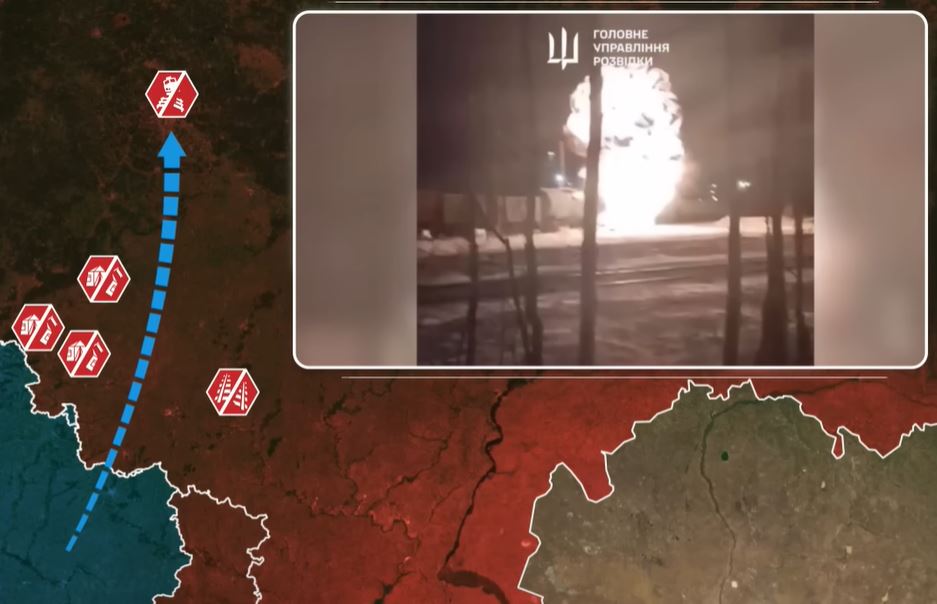
Notably, freight cars designated for military transport were destroyed in Voskresensk, while unidentified saboteurs set electric trains ablaze in Moscow’s suburbs, rendering them unusable.
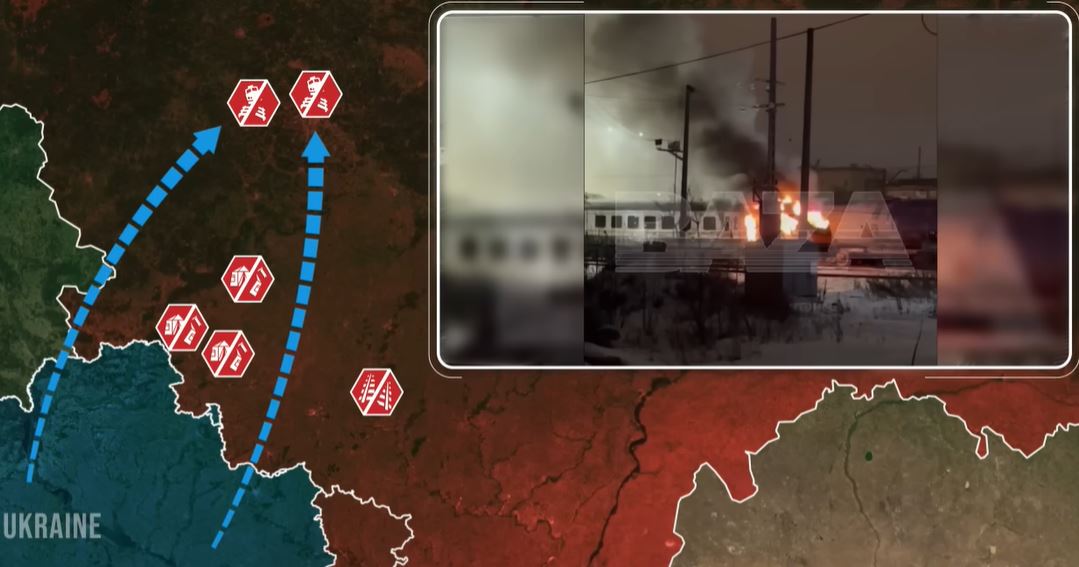
By systematically crippling Russia’s rail infrastructure, which is an essential backbone of its logistics network, Ukraine has not only delayed the flow of supplies but also amplified the logistical strain on Russia’s military campaigns.
Fuel depots targeted in Ukrainian strikes
Thirdly, fuel and oil depots remain a prime target for Ukrainian strikes.
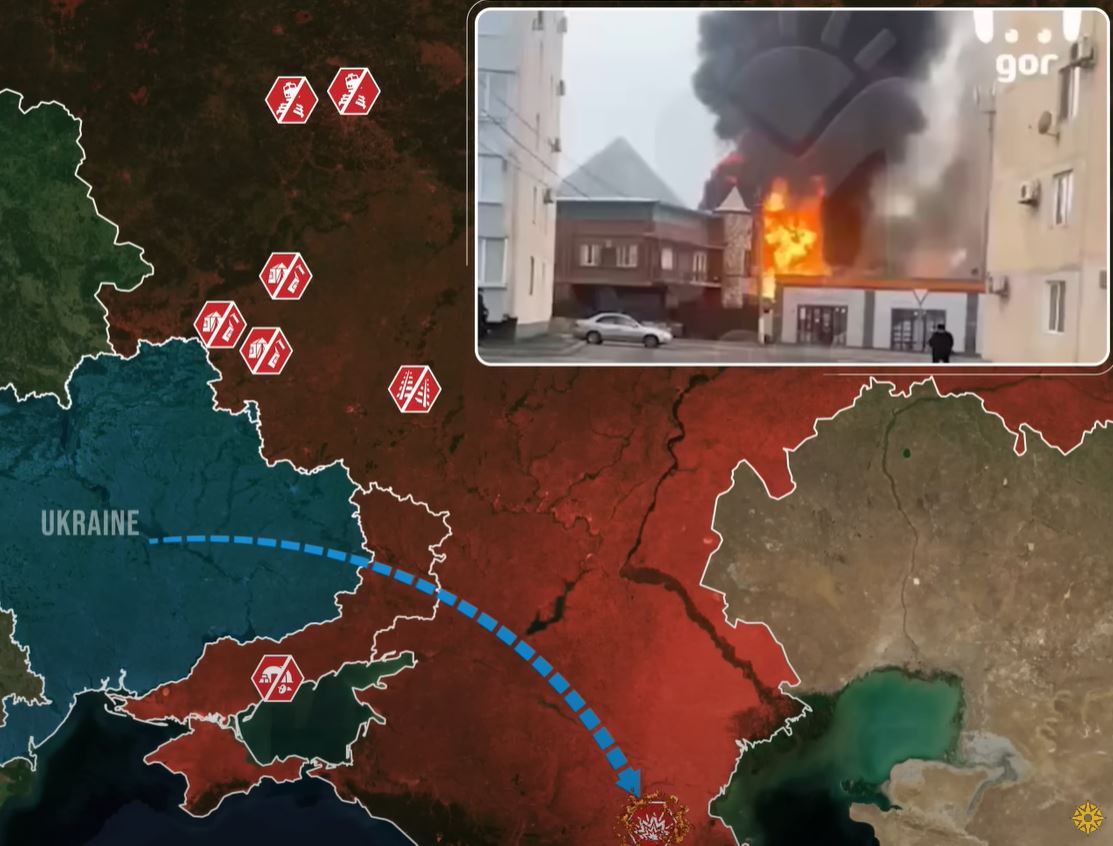
Starting with an explosion at a gas station in Grozny causing local fuel shortage, Ukrainian forces also successfully destroyed the important oil depot in Smolensk with drones, causing a fire that consumed large quantities of lubricants and fuel.
Fire engulfs Smolensk oil depot in Russia after alleged drone strike (video)
Such an attack directly impacts Russia’s mechanized operations, slowing their ability to mount offensive and maintain supply chains and forcing them to use infantry without armored support, which causes them even higher losses.
Ukrainian naval drones eliminate Russian helicopters
Lastly comes a groundbreaking achievement, of which we have already covered the first steps in a previous report.

Now we have the first confirmed destruction of two Russian Mi-8 helicopters by Ukraine’s Magura V5 naval drones, equipped with missile armament. The Main Military Intelligence Directorate of Ukraine released footage from one of the drones showing how they dodged fire from the Russian helicopters before successfully intercepting them.
Ukrainian sea drone downs Russian helicopter in historic first (video)
The video shows the confirmed destruction of one helicopter and the damage to a second one, initially thought to have been able to return to its base.
In a shocking turn, it was later confirmed by a prominent Russian military analyst that the second Mi-8 was also destroyed when he wished his condolences to the relatives of the members of the two helicopter crews. This engagement near Crimea marked a turning point in the dynamics of the war in the Black Sea. Russian helicopters, once dominant in countering naval drones, are now vulnerable prey. The downing of these aircraft opens the path for Ukrainian naval drones to operate with greater freedom, potentially reshaping the maritime battle even further.
Widespread impact on Russian military operations
Ukraine’s multifaceted approach deep behind the frontline, targeting command centers, logistics, fuel supplies, and even finding a solution to aerial threats at sea has dealt severe blows to Russia’s war efforts. By systematically dismantling critical components of the Russian military infrastructure, Ukraine is forcing Moscow to divert resources, rethink strategies, and operate under mounting logistical strain.
In our regular frontline report, we pair up with the military blogger Reporting from Ukraine to keep you informed about what is happening on the battlefield in the Russo-Ukrainian war.
Related:
- Frontline report: North Korean forces routed in deadly Ukrainian trap near Russia’s Kruglenkoe
- Ukrainian maritime drones destroy two Russian helicopters near Crimea for the first time ever
- Fire engulfs Smolensk oil depot in Russia after alleged drone strike (video)
- Frontline report: Two Ukrainian HIMARS strikes cripple Russian reinforcements rushed to Kursk front
- Defense Express: Modified Soviet-era missile enables maritime drone’s aerial capabilities
- Ukrainian sea drone downs Russian helicopter in historic first (video)



